How York and a horse called Frankel inspired legendary trainer Sir Henry Cecil in his cancer fight according to late trainer’s personal papers
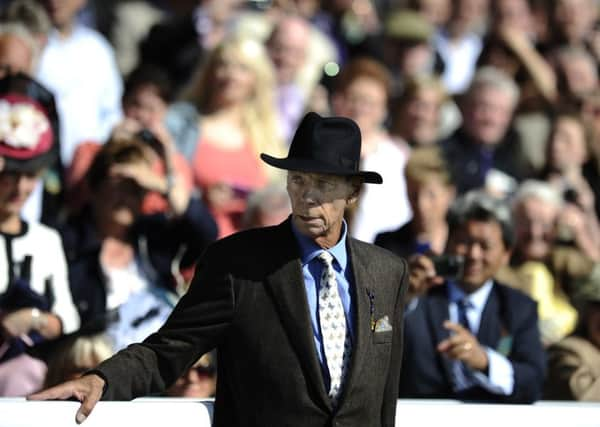

DEBILITATING cancer was the least of an ailing Sir Henry Cecil’s worries on, arguably, the most poignant day of his career. It was the traffic-jams on the A64 because so many people were travelling to York to watch Cecil’s incomparable champion Frankel.
Advertisement
Hide AdAdvertisement
Hide AdThey did not just want to see Frankel, a horse for the ages, on that day in 2012. They also wanted to support a trainer whose revival years had enriched so many lives. And, as a new authorised biography reveals, he did not want to disappoint his Yorkshire faithful.
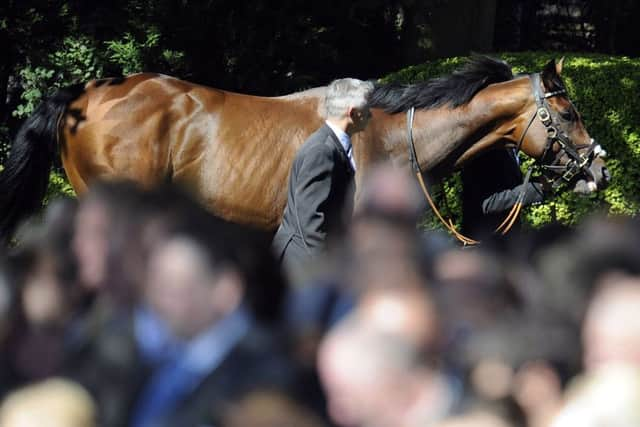

Greatly touched by the roadside banners proclaiming the thoroughbred Frankel, he did arrive in time to saddle his superstar in defiance of his cancer consultants. And, understandably, he struggled to find the right words when this equine colossus recorded the most mesmeric of his 14 wins when turning the historic Juddmonte International into a one-horse race with one electrifying burst of acceleration.
Radiotherapy had reduced his faltering voice to a whisper – and then there was the raw emotion as the crowd yelled ‘three cheers’ for Sir Henry. Painfully gaunt, he turned to them and doffed his felt cap, worn to mask the ravages of chemotherapy, in acknowledgement. Words were not needed.
Advertisement
Hide AdAdvertisement
Hide AdIt was, prophetically, the peerless trainer’s last visit to the county where he always found contentment on the racetracks or at his Helmsley stud farm. Sir Henry Cecil died the following June at the age of 70 after losing his unequal struggle with cancer, the indiscriminate illness which had previously claimed the life of his twin brother David.
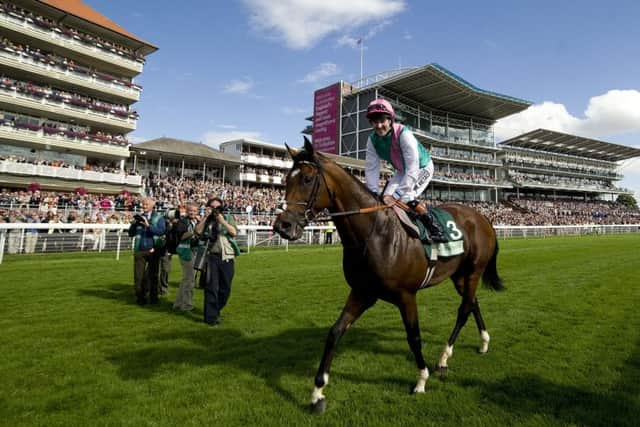

Yet now an emotive biography, The Triumph of Henry Cecil, uses the late trainer’s personal papers – and interviews with staff – to reveal how Frankel’s emergence inspired his fight against stomach cancer.
The intention by Sir Henry’s widow Lady Jane, and author Tony Rushmer who helped with publicity during the Frankel years, was to chart the trainer’s redemptive revival from the nadir of 2005 when he saddled just 12 winners.
However, while the book culminates with Frankel’s unrivalled brilliance, Cecil’s human qualities also shine brightly. “Henry was very aware of being positive,” Lady Jane tells The Yorkshire Post in an exclusive interview.
Advertisement
Hide AdAdvertisement
Hide Ad“People used to write him and a good friend, who had breast cancer, still treasures the letter he wrote to her and the encouragement that he gave to her. He wrote to all sorts of people to give them encouragement – and I know he was encouraged by people writing to him.”
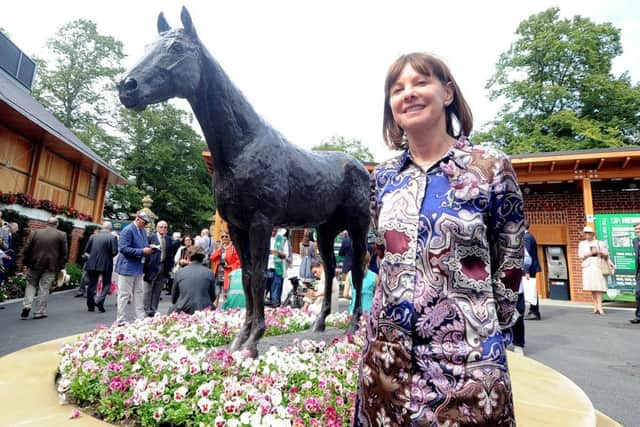

This correspondence, and instructions about the needs of his horses, was invariably written at dawn at the trainer’s historic Warren Place Stables in Newmarket where he supervised morning gallops before going to hospital.
“He used to wake up early,” recalled Lady Jane whose brother, Richard Guest, is a Flat trainer at Wetherby. “First thing in the morning, he would write up his notes so he could still concentrate on his work. He liked to put it all down when the thoughts were all fresh in his mind.”
The stepson of champion trainer Captain Cecil Boyd-Rochfort, Cecil saddled his very first winner 50 years ago in May 1969 when Celestial Cloud won at Ripon.
Advertisement
Hide AdAdvertisement
Hide AdHe went on to become such a dominant figure that his place in history was assured long before he lost the patronage of some top owners.
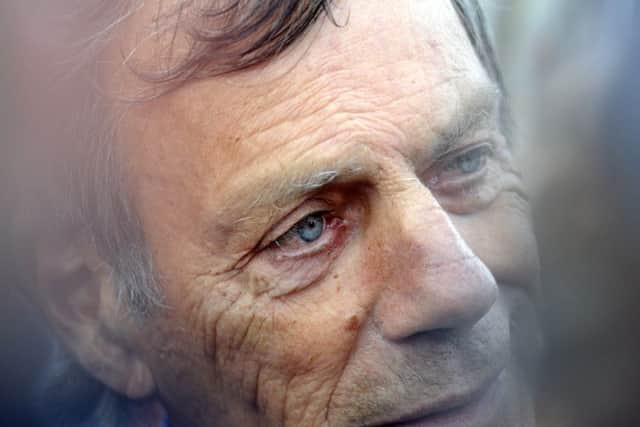

Yet worse was to come. A nagging discomfort in his abdomen was diagnosed in 2006 as stomach cancer. “There’s no point in me lying down,” vowed the 10-times champion trainer. “If I lie down and rest, all I’ll think about is ill how I am.”
Written off by many, Cecil still had great allies in leading owners Prince Khalid Abdullah, whose white, green and pink colours were carried by Frankel, and his racing manager (Lord) Teddy Grimthorpe from Westow. Their loyalty was as important as Cecil’s blossoming relationship with his future wife Jane McKeown and support of trusted staff. And, in spite of cancer, the winners did return – cheered on by a tide of public affection.
“He always said racing was a way of life and that it was all he had done,” said Lady Jane. “He just loved his life, he loved horses and the people who worked with the horses. That helped him. You normally get when you’re going to have your treatment. Henry was very specific. He used to try and get first, second and even third lot out on the gallops, and watch them, before going to hospital for chemotherapy.
Advertisement
Hide AdAdvertisement
Hide Ad“When he went for the treatment, he would ask for it to be speeded up. Many patients have chemo slowed down so they’re less sick He just wanted to get back to Warren Place, see the roses in his garden – he loved his roses – and his horses. Especially Frankel.”
Yet, while Cecil’s personal frailties and, at times, turbulent private life were well-documented and endeared him to many, he never lost the qualities that served him so well since that first winner at Ripon when he was just 26.
Like his instinctive view, as a horseman, that racehorses should never jump off at the start of a gallop – he preferred them to ease into their stride for their own longevity.
Like his personal touches. When his assistant, David Lanigan, left to take out a training licence, Cecil called racing journalists to offer his own glowing endorsement.
Advertisement
Hide AdAdvertisement
Hide AdLike his determination when a trip to America did not end with a miracle cure. “Well, what are you going to do?” he once asked surgeons at the world-acclaimed Mayo Clinic.
And like Cecil’s intuitive belief that Frankel would, potentially, be his greatest ever horse when the yearling, still unraced, arrived at Warren Place 10 years ago.
Yet, as the champion neared equine perfection in 2012, Cecil’s health deteriorated markedly and consultant haematologist Dr Charles Crawley recalls how his patient just doodled pictures of horses during consultations. “My notes are littered with sketches,” he discloses. “There was absolutely no way that he was not going to be at those events. He’d have gone dragging a bag of chemotherapy and a nurse with him.”
Cecil did get to York and wrote. “The Yorkshire racing public gave him (Frankel) a wonderful reception and I was so pleased we managed to get to the Knavesmire as the North really appreciates seeing good horses.”
Advertisement
Hide AdAdvertisement
Hide AdFrankel won a 14th and final race – Ascot’s Champion Stakes – before being retired. He is regarded as the Flat’s most prodigious equine talent. On the day the horse left his stable, Cecil drove across the Suffolk town to ensure that the champion arrived safely at Banstead Manor Stud to begin stallion duties. He just wanted to do his best for the horse until the last.
After her husband’s death in June 2013, Lady Jane Cecil took up training – and enjoyed Group One success. She now helps the Discover Newmarket tours where racegoers can see Frankel; supports East Anglia Children’s Hospice and wants to do something “in Henry’s memory in racing”.
She will be at York next month where she will walk through the Sir Henry Cecil gates with pride and watch a race staged in memory of her late husband. And, while she hopes cancer sufferers, and their families, draw strength from the book, she will “cherish all the memories”. “I’m very, very lucky in that way,” added Lady Jane.
So, too, is everyone in racing touched and blessed by Sir Henry Cecil.
Advertisement
Hide AdAdvertisement
Hide AdThe Triumph of Henry Cecil: The Authorised Biography is published by Constable, price £20.
SIR Henry Cecil’s notes, written on the day Frankel left his stables in late 2012, reveal what the horse truly meant to him. “He has given more so much strength this season with my personal health problems,” he noted on A4 paper in handwriting that was almost indecipherable.
“Although only missing the Sussex Stakes because of treatment, (I) had made sure that I was there for him... and to saddle him on the racecourse, I have been training my horses quietly at home and trying to pace myself.
“Being very vain (I) have not been racing otherwise for two main reasons. Firstly I have temporarily lost my voice and secondly, after 600 hours of chemo in three months, (it) looks as if I would not be alive the next day.”